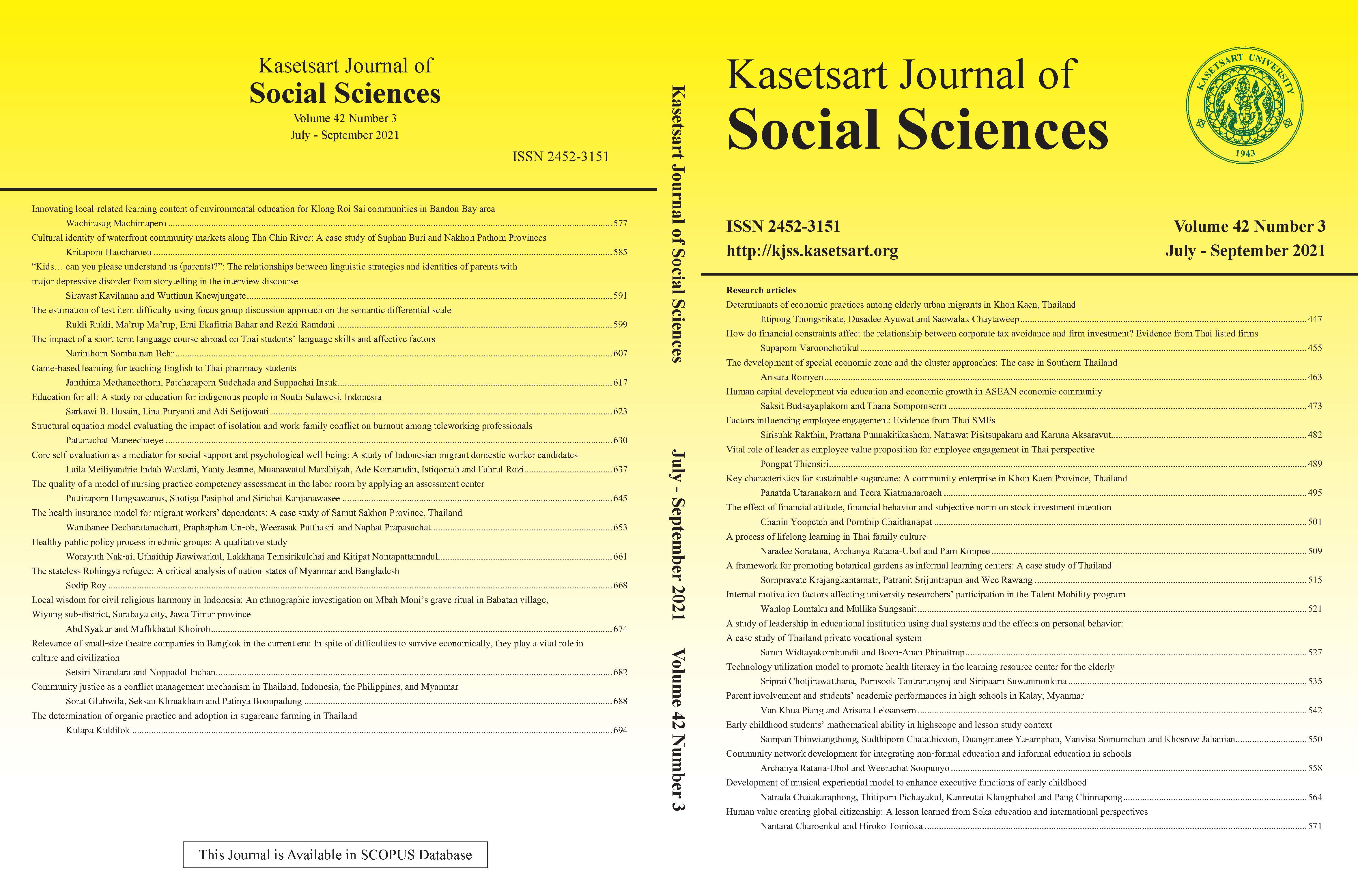“Kids… can you please understand us (parents)?”: The relationships between linguistic strategies and identities of parents with major depressive disorder from storytelling in the interview discourse
Keywords:
depression, discourse and pragmatics, identities, interview, parentsAbstract
The purpose of this research paper is to study the relationships between linguistic strategies and identities of parents with major depressive disorder from storytelling in the interview discourse. The data were collected by interviewing 5 parents with major depressive disorder using the concepts of discourse analysis and pragmatics as the research conceptual framework. The results showed that the parents with major depressive disorder used 8 linguistic strategies, namely lexical choice, metaphor, parallel structure, repetition, fallacy, expectation, self-questioning and conversational implicature. These linguistic strategies are related to two identities of the parents with major depressive disorder. Therefore, children have to understand the parents who are suffering from depression in order not to let it become the medical and public health problem that is related to national development.
Downloads
Published
How to Cite
Issue
Section
License

This work is licensed under a Creative Commons Attribution-NonCommercial-NoDerivatives 4.0 International License.
This is an open access article under the CC BY-NC-ND license http://creativecommons.org/licenses/by-nc-nd/4.0/










